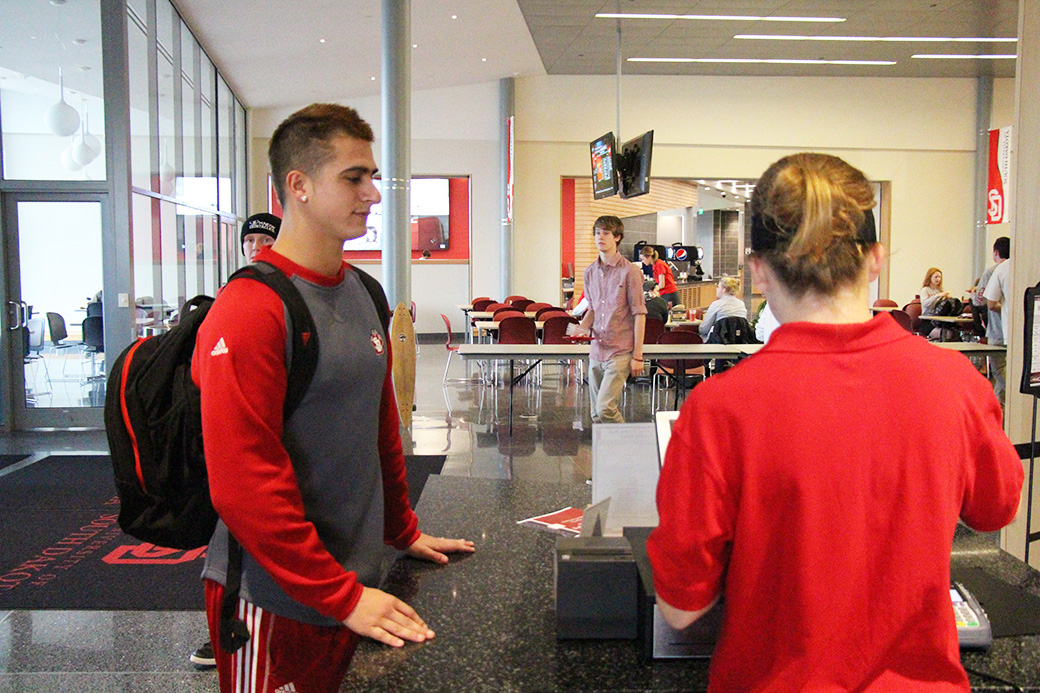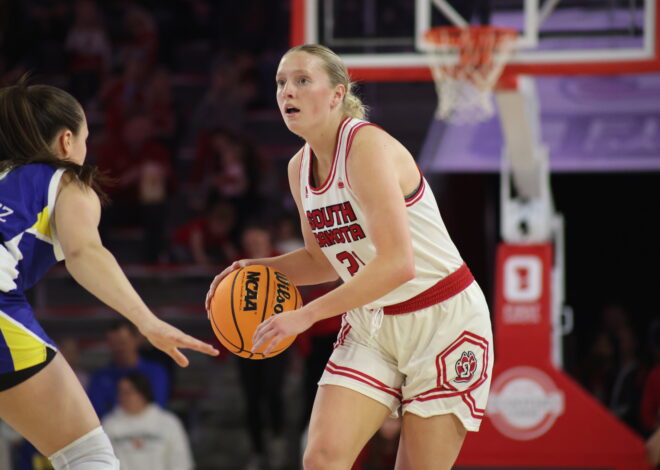
Unlimited meals ruling has little affect on USD
Last season, high jumper Tyler Frank was a first-year stepping up as the lead high jumper, but he wasn’t on scholarship. He finished second in both conference indoor and outdoor track championships.
This year he is on scholarship, but his scholarship covers only tuition. He is responsible for his room and board as well as providing his own meal plan.
“Living on campus is very expensive for me,” Frank said. “(Paying for) the food doesn’t bother me — I get enough meals provided to me on my current plan.”
Meal plans for athletes are a big topic across the nation. In April, the NCAA approved legislation allowing student athletes to be eligible to receive unlimited meals and snacks as part of their scholarships.
The decision allows universities to provide the unlimited meals, but does not make it mandatory and will impact the power five conferences: the ACC, Big 10, Big 12, Pac 12 and SEC.
University of South Dakota student athletes on athletic scholarships, however, are unable to receive these unlimited meals. Instead, athletes are given a recommended food plan or stipend from the university.
Athletic Director David Herbster said USD doesn’t have the resources power five conferences have to provide athletes with unlimited meals.
“Here at USD, we have a budget of $10 million. Compare that to a school like Texas where they have a budget of over $150 million, and it’s easy to see how they are able to provide that extra service to their athletes,” Herbster said.
USD is not the only school facing this dilemma. Herbster said Missouri Valley and Summit League schools are exploring ways to help the student-athletes out, but none of them are providing the unlimited meal plan currently.
A full athletic scholarship at USD covers a student-athlete’s room and board, tuition and a meal plan or stipend. Certain Coyote student athletes are only given partial scholarships.
Junior basketball player Tia Hemiller said she and her teammates and have no room for argument about her full athletic scholarship.
“I’m not complaining,” Hemiller said. “We are fortunate enough to receive this opportunity to attend school on scholarship. Our tuition, room and board and a meal plan is provided to us on scholarship.”
Hemiller isn’t even sure how she would react to having unlimited meals.
“It would be pretty cool, but honestly, I think it would a little too much,” she said. “You are provided with enough food currently. I guess the idea of being able to get food at any time of the day would be nice because usually with school and basketball, sometimes I run out of time to eat.”
For students who absolutely need more meals, Herbster said it’ll be up to the university, the athletic conferences and the NCAA to figure out how to accommodate for students.
He said it’s not a topic that will go away as the divide in college athletics is growing between big and small schools.
“The NCAA could provide smaller schools with the financial resources to make sure it an equitable playing field,” Herbster said. “This ruling may make it seem that Division I athletes are more important than Division II and Division III athletes.”
(Photo: Jacob Warner, a sophomore safety for the University of South Dakota football team, waits for his student identification card to be swiped at the Commons Monday evening. Due to an NCAA ruling, student athletes may receive an unlimited amount of meals, but in the case of USD athletes, unlimited meals are not provided. Malachi Petersen / The Volante)

